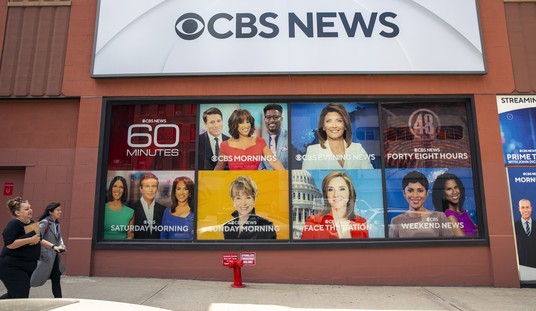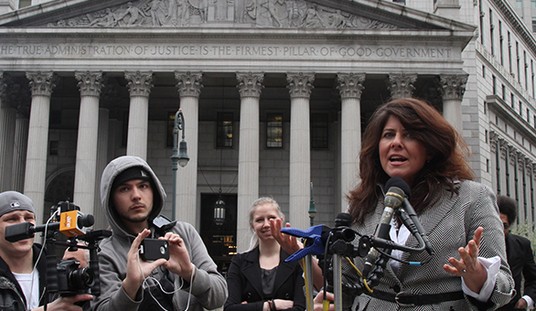One of my favorite pieces of classical music is Verdi's "Messa da Requiem," which I find sweeping, majestic, and wonderful. One of the hardest-hitting segments of that work is "Dies Irae," or "Days of Wrath," which portends the end of the world:
Dies irae - Dies illa (The day of wrath, that day)
Solvet saeclum in favilla (Will break up the world into ash)
Teste David cum Sybilla (As testified by David and the Sybil)
Dies irae - Dies illa (The day of wrath, the day of wrath, that day)
It's chilling to think about, isn't it? Verdi's piece was intended to represent the End of Days, and if you listen to the whole thing, it does a pretty good job of it. The sweeping vocals, the hammering percussion, the strings section crying out in agony... I get chills listening to "Dies Irae."
Why do I bring this up? Over at the American Conservative, scribe James P. Pinkerton has some cogent observations about the likelihood of a second American Civil War and the likely outcomes. My take: If there were to be a second civil war, he's probably too optimistic about the likely outcome. I think a second such war would indeed be days of wrath.
Are Americans headed toward a civil war? We’ve already had one, so we know it’s within the realm of possibility. In fact, by one reckoning, the English speakers have had two other civil wars in the last four centuries, spaced out every hundred or so years. Is there some sort of deep cycle at work here? With, er, implications for our own troubled times?
Such questions are brought to mind by a book published back in 1998, Kevin Phillips’ The Cousins’ Wars: Religion, Politics, and the Triumph of Anglo-America. That volume connects three conflicts, the impacts of which were felt strongly on both sides of the Atlantic: the English Civil War of the 17th century, the American Revolution of the 18th century, and the American Civil War of the 19th century.
We're well over the hundred years mark since the War Between the States, which I would contend wasn't a real civil war but rather a war of secession. But there can be no denying that tensions are on the rise and have been for some time, and in recent weeks, we have seen a Republican governor (rightly) defying a hapless, ineffective American president, and 24 other Republican governors have joined in the defiance.
See Related: Greg Abbott Lays Down the Facts About the Border and Biden's Failure to Protect It
Here's where I differ from the author:
Will we, in fact, have a fourth Cousins’ War? To be sure, both sides, Red and Blue, cite a long train of abuses, and without a doubt we have an upcoming crazy train of elections and the inevitable disputes. Yet the Anglo-Saxons were always good at better angel-ing; they might have fought like the dickens, but in the end they stopped well short of outright annihilation and permanent vendettas. So let’s pray that post-WASP America can summon up the same spirit of pragmatism, updating the Puritan dream of a city upon a hill with a new vision: two cities upon the hill.
I'm skeptical that an outright civil war — two or more factions struggling for control of one nation — can end with a peaceable separation. Here's why:
- Picture the Summer of Love amplified in every city and even large town in the nation. That's likely what a second civil war here would look like. At least 25 people died in the 2020 riots; an outright war could kill millions.
- The United States collapsing into civil war has global implications. Not only is the United States the world's largest market, it has been, since the Second World War, the guarantor of safe commerce on the world's oceans. Removing those two factors will crash the entire world into economic depression.
- The two largest powers after the United States, China and Russia, are incapable of filling the American place in the global marketplace or in maintaining order on the world's trade routes. Both are dying giants; neither can project force globally, which, for all its recent troubles, the American military still can.
- A true civil war, which would see mass starvation in the cities and open fighting in the streets and the fields, will result in antipathies that will last for generations; it's unlikely in the extreme that these two sides will suddenly decide to live peacefully, side by side.
Any such conflict will be a true civil war. There will be few geographic boundaries other than urban vs. rural. This will be a conflict that doesn't involve the military so much as gangs of irregulars; imagine Charlottesville if both sides had come armed and willing to open fire.
And a second civil war will be fought amongst us. It won’t be fought on open battlefields; it will be fought in our city streets, in the suburbs, on the roads and byways of our nation.
Imagine pitched battles on the streets of our major cities, what is left of established authority against rioting mobs, rioting mobs against each other. Imagine those mobs engaging in raids into the suburbs when the cities run short of food and water. Imagine a complete breakdown of emergency services in those cities as first responders encounter armed gangs willing to kill them for their vehicles, equipment, and medicines. Imagine hordes of refugees fleeing the cities into the countryside, under the misapprehension that somehow there is plenty of food to be had in the countryside, but having no skills whatsoever to find or grow said food. Imagine rural residents facing rampant theft and trespassing responding by forming their armed militias to repel the invaders and thus escalating the conflict into the countryside.
The situation will likely escalate, atrocity breeding atrocity. Just read some of the rhetoric on X/Twitter and Facebook, two essentially content-free forums catering in large part to the lowest common denominator, and imagine the fevered rhetoric therein translated to action.
A second American civil war, this one a true civil war — would likely result in the end of the United States as a viable nation. It would plunge the world into a major economic depression and possibly a new Dark Age, especially if certain nations in the Middle East gain global influence from the United States' collapse.
Days of Wrath might just end up being something of an understatement.














